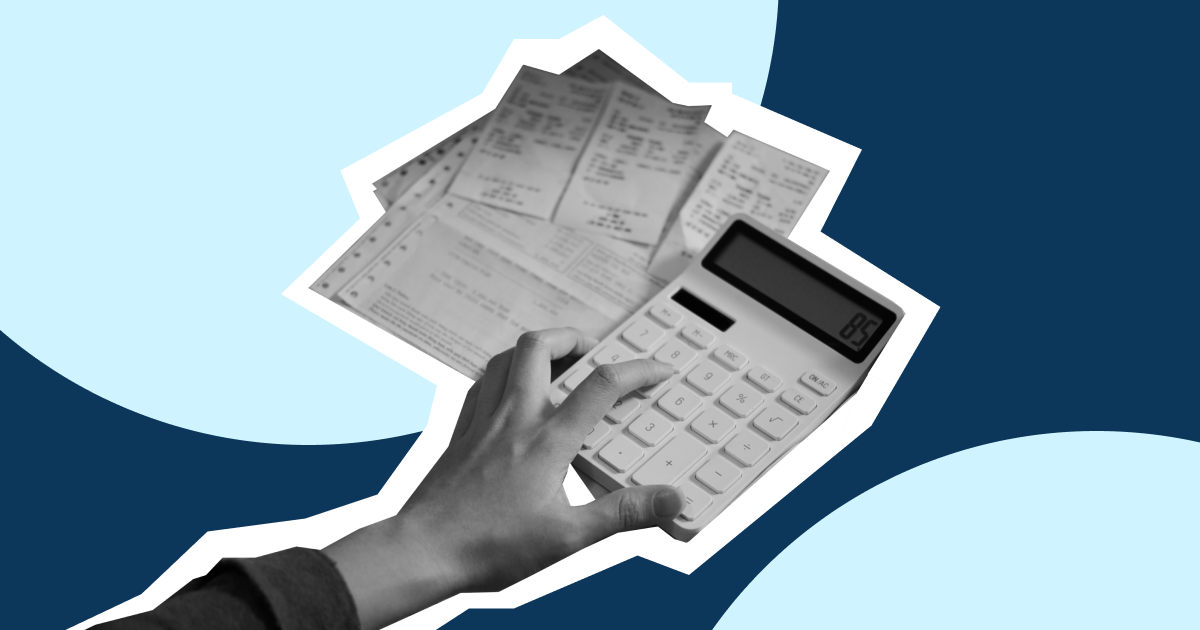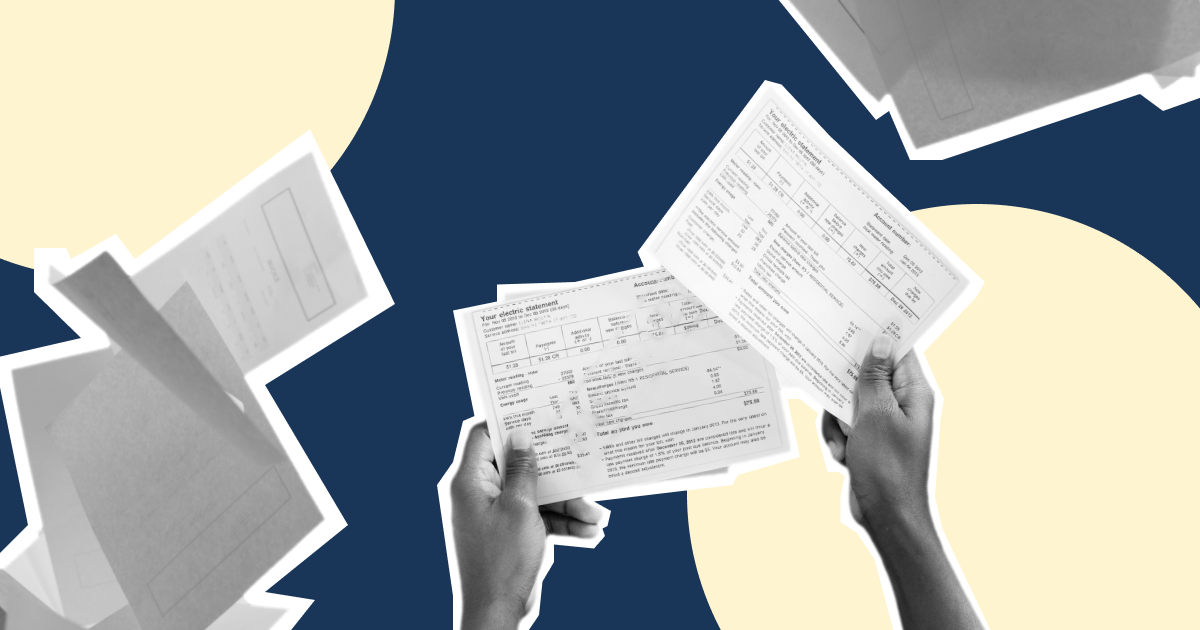Summary
- Disbursement refers to payments made by a business or its authorised agent, such as paying a supplier, a loan disbursement, or a legal fee advanced on behalf of a client
- Reimbursement involves repaying an individual, typically an employee or service provider, for out-of-pocket expenses incurred while performing business duties
- The main difference between reimbursement and disbursement lies in the role of the payer: disbursements are made by an agent on behalf of a principal, while reimbursements are claimed by a principal who paid using their own funds
- Common disbursement types include cash or electronic payments, recurring expenses, controlled or delayed payments, and positive or negative loan disbursements
- Reimbursements typically cover business travel, office supplies, insurance claims, or professional development, and must comply with accounting standards and tax regulations
- GST treatment in Singapore differs: disbursements are not subject to GST, while reimbursements may be, depending on whether there's an underlying supply of goods or services
- Understanding this distinction is essential for accurate expense tracking, GST compliance, and improving operational efficiency in your business
Expenses are common in business. But not all business expenses are the same. Particular attention must be paid to two types of business expenses – disbursement and reimbursement – and the differences between the two. Knowing the difference between disbursement and reimbursement is important for effective cash management.
In this article, we will discuss disbursements and reimbursements and show you how to tell the two apart with the help of some everyday examples.
Meaning of disbursement
The meaning of disbursement is quite simply money paid by a business, usually from a dedicated fund. The payment of interest on a loan or dividends to shareholders is an example of disbursement. A company also disburses payment to a third party, such as a consultant, for work it hired them to do. A disbursement is not only made by a business but can also be made to a business, for example, the disbursement of a loan by a bank to a company or a government grant to a start-up.
Disbursements are also common outside the world of corporate finance. For example, a college student who qualifies for a government scholarship receives a disbursement in their bank account from the Department of Education.

Now, let's look at reimbursement meaning.
Meaning of reimbursement
The meaning of reimbursement is compensation paid by a business to an employee or another party for out-of-pocket expenses incurred by them in the course of their work. Reimbursements in business are most commonly associated with employee reimbursements. Most companies, as a policy, offer their employees reimbursements for travel (airfare, taxi fare), accommodation (hotel bills), food (restaurant bills), tuition (college courses, training workshops), office supplies, utilities (internet and mobile phone bills), healthcare, and so on.
Disbursement vs reimbursement: What is the difference?
To sum up the difference between disbursement and reimbursement, a disbursement is simply a payment while a reimbursement is payment that is compensatory in nature. One way to tell the two apart is by checking if the party or individual incurring the expense was acting as an ‘agent’ or a ‘principal’. The clarification can be explained through the following examples, shedding light on the nuanced dynamics of disbursement vs reimbursement:
Disbursement
You hire a lawyer for a specific legal task. In the process of getting the job done, the lawyer pays for court fees and for the services of a private investigator, courier firm, and experts. Once the work is completed, the lawyer sends you an invoice for their legal fee and includes the other expenses they incurred on your behalf as a separate item. The recovery of these expenses by your lawyer is a disbursement because their payment is ultimately your responsibility and not that of your lawyer. Your lawyer was, therefore, acting as an agent when they made the payment on your behalf.
Reimbursement
You send your employee to represent your company at an international business conference in a foreign country. She travels to the country, stays there in a hotel, pays taxi fare to get to the conference venue and back, and has all her meals in restaurants. She covers all these expenses with her personal money. On returning to the office, she puts in a request to be reimbursed for her out-of-pocket business expenses. You approve her request and pay her back what the company owes her. This is a reimbursement because the employee spent money on goods and/or services (flight, hotel, food) that she used as a principal. However, because the expenses were incurred on the job, you reimburse her for it.
Principles of disbursement
By now we know that a disbursement is a recovery of expenses by your agent. An agent is one that fulfils the following conditions:
- They make arrangements for the supply of goods and/or services on your behalf.
- They are not a party to the contract, which is strictly between you and the supplier.
- They do not own the goods and/or services; the ownership lies with you.
- They are not legally obligated to pay the supplier but are authorised by you to do so. Hence, the supplier’s invoice bears your name and not theirs.
- They do not have the authority to change the nature or value of the goods and/or services to be supplied unless specially instructed by you.
- The supplier knows your identity as the actual buyer.
- You know exactly how much your agent spent on purchasing the goods and/or services from the supplier.
Types of Disbursements
Disbursements are simply the payments you make to keep your business running smoothly—things like paying suppliers, staff salaries, or even loan repayments. Let’s break them down:
Cash and Electronic Disbursements
- Cash Disbursements: This covers payments made the old-school way—physical cash, cheques, or drafts. For instance, if you need to pay a local supplier for a one-off purchase, you might write them a cheque.
- Electronic Disbursements: These are payments done digitally, like bank transfers or systems such as GIRO or FAST. Think of paying your utility bills or transferring funds to a vendor through online banking—quick and hassle-free.
Controlled Disbursements
These give you more control over outgoing payments. Essentially, you get to review and approve payments before they go through, which is great for large or sensitive transactions, like dealing with overseas suppliers. Many banks in Singapore offer this service to help businesses stay on top of their cash flow.
Delayed Disbursements
Not all payments need to go out straight away. Delayed disbursements are when payments are put on hold until a specific date or condition is met. For example, you might agree with a contractor to pay them only after they’ve completed a particular phase of work.
Loan Disbursements
Loan disbursement refers to the process of releasing funds from a lender (such as a bank or a Singapore company) to a borrower for a specific purpose (such as business expansion or equipment purchase). In Singapore, the Companies Act (Chapter 50) provides a legal framework for loan disbursement, ensuring that corporate lending activities are conducted with proper authorisation and transparency.
- Positive Disbursement: This is when loan funds are credited to your account—for example, a business loan for expanding your operations.
- Negative Disbursement: On the flip side, if unused funds are returned to the lender, that’s called negative disbursement. This could happen with things like revolving credit facilities.
Recurring Disbursements
These are your regular, predictable payments—think staff wages, office rent, or monthly subscriptions for software. Automating these payments can save you time and ensure you never miss a due date.
Principles of reimbursement
Similarly, in a reimbursement, the expense is incurred by the principal. One is a principal if:
- They enter into a contract for the supply of goods and/or services in their own name and capacity.
- They are the recipient and owner of the goods and/or services.
- They are legally obligated to pay the supplier for the goods and/or services. Hence, their name is on the supplier’s invoice.
- They are the only party known to the supplier.
- They can change the nature or value of the goods and/or services to be supplied.
- They decide the value of the expense to recover as reimbursement.
Types of Reimbursements
Reimbursements are about covering costs that someone else—usually your employees—has paid on behalf of your business. Here’s a closer look:
Business Expense Reimbursements
If one of your employees pays for something work-related, like travel or office supplies, you’d reimburse them once they provide the receipts. Don’t forget—compliance with IRAS regulations in Singapore is key here.
Insurance Reimbursements
Sometimes, you might need to pay upfront for insurance claims and get reimbursed later. For example, if an employee uses their health insurance for a doctor’s visit, they can claim back the cost through your corporate insurance policy.
Tax Refunds
If you’ve overpaid taxes—say, GST during a reporting cycle—you can claim a refund from IRAS. It’s not extra money, just your own cash being returned, but still, it’s good to get it back!
Reimbursement Alimony
Although not common for businesses, this is when one party has to repay another due to a personal financial obligation, like education or career support during a divorce. While not likely to affect your business directly, it’s worth being aware of.
Petty Cash Reimbursements
For those little day-to-day expenses like parking fees or a courier charge, petty cash comes in handy. By keeping a log, you can quickly reimburse these small but necessary costs.
Education Reimbursements
Investing in your team’s professional growth? Many businesses reimburse employees for training courses or exams. It’s a win-win—your staff gain new skills, and your business benefits from their development.
Key difference – who is an agent and who is a principal?
Source: Inland Revenue Authority of Singapore e-Tax Guide
Example: Disbursement
- Company A engages consultancy firm B to change its registered name with the Accounting and Corporate Regulatory Authority (ACRA) of Singapore. B files a name change request with ACRA and pays the SGD $15 fee for it. Here, A is required under law to inform ACRA of a change in its name, have the new name registered, and pay for it. As B paid the fee in its capacity as A’s agent, B recovers the expense from A as a disbursement.
- Importer I hires freight forwarding company F to receive his shipment at the Port of Singapore. F pays the import customs duty. And, as the shipment has to be stored in a warehouse at the port for a few days due to an unavoidable customs delay, F covers the warehousing fee as well. Here, I is the importer and owner of the goods and is legally bound to pay the customs duty and warehousing fee. F was simply acting as I’s agent. Hence, F can recover the expenses it incurred from I as a disbursement.

Example: Reimbursement
- Company XYZ tasks employees A and B with buying new goods to stock up on inventory. A and B go to meet the supplier in person and pay for taxi fare out of their own pockets. A and B are the principal in this case because they rode the taxis themselves and were required by law to pay the taxi drivers. But as they incurred expenses while doing their job, they can seek reimbursement from XYZ. This is an example of employee reimbursement.
- Company C hires marketing firm M to carry out new market research. As the assignment requires M to send a team to a distant city, it pays for the team’s travel and stay. In this case too, M is the principal as the flight and hotel bookings are used by its employees and not by C. But because the two sides have a contract that accounts for out-of-pocket expenses, M sends C an invoice for its services with a separate line item on its team’s travel expenses. Eventually, C reimburses M for the same.
Reimbursement vs disbursement: GST implications
It is very important to know the difference between reimbursement and disbursement from the goods and services tax (GST) point of view as well. Incorrect GST treatment of disbursements and reimbursements is common in Singapore, prompting the Inland Revenue Authority of Singapore (IRAS) to increase its scrutiny of such mistakes. Incorrect tax treatment, whether intentional or unintentional, can lead to stiff penalties and failed audits.
First, a quick recap of GST: it is an indirect tax levied on the supply of goods and services in Singapore (it is called Value Added Tax or VAT in some other countries). It is charged to the end customer, which means GST-registered businesses in Singapore charge GST on the goods and services they provide to their customers and then pay the collected tax to the IRAS. The standard GST rate in Singapore is 7%, revised to 8% with effect from January 1, 2023.
Disbursements are not subject to GST. The agent recovers money they spent on obtaining goods and/or services for you. They don’t own the goods and/or services and just paid for it on your behalf. So, when they seek to recover the expense from you, there is no underlying supply of goods and services to you for GST purposes.
Reimbursement GST is more complex as they apply and may not apply in some cases. For a reimbursement to be taxable, there must be an underlying supply of goods and/or services to you from the principal. However, reimbursements are not taxable if:
- If it is in the form of compensation (employee reimbursements) and there is no supply of goods or services to the paying party.
- If the reimbursement is for a penalty (parking ticket, late payment fee, etc) and there is no supply of goods and services to the paying party.
- If the supply is an exempt supply as specified in the GST Act.
If a reimbursement constitutes a supply and is subject to GST, you can claim input tax on it. Input tax is the GST you pay when you make a purchase from a GST-registered supplier or import goods into Singapore.
Although complex, GST compliance is essential for reimbursements in Singapore. Traditionally, businesses had to manually verify whether receipts were GST-registered and if input tax claims could be made, a time-consuming and error-prone process. Modern spend management software now automates these tasks, capturing GST-registered receipts, checking eligibility, and even preparing input tax claims. This not only reduces administrative work but also minimises the risk of errors.
To better understand the GST implications on disbursements and reimbursements, let’s take a look at below example.
Disbursement: Suppose your company engages a lawyer who pays SGD $1,000 in court fees on your behalf. Since this is a disbursement, no GST is charged on the recovery because the lawyer was acting as your agent.
Reimbursement: Suppose your employee is on a work trip and needs to make an out-of-pocket payment of SGD $1,000 for hotel accommodation. If the hotel is GST-registered, the bill would include 8% GST (SGD $80). When you reimburse the employee, you can claim SGD $80 as input tax, provided it is a valid business expense and you retain the supporting tax invoice.
For more details on the tax implications, you can refer to the official IRAS e-Tax Guide for the definitive rules and updates on GST treatment.
What Is a Digital Disbursement?
A digital disbursement is simply the process of sending money electronically, whether to your employees, suppliers, or customers. Instead of relying on cheques or cash, you can make payments quickly and securely using online methods like wire transfers, GIRO payments, or mobile payment platforms.
In Singapore, GST compliance is critical for reimbursements. Traditionally, businesses needed to manually verify whether receipts were GST-registered and whether input tax claims could be made. Modern tools, like Spend Management software, now automate this process. These systems automatically capture GST-registered receipts, check for eligibility, and even prepare input tax claims, significantly reducing administrative work and lowering the risk of errors. This turns a previously tedious compliance task into a seamless part of managing employee expenses.
As a business owner in Singapore, digital disbursements are more than just a convenience. They’re a game-changer. Here's why you should care:
Advantages of Digital Disbursements
1. Speed and Efficiency
With digital disbursements, you can manage payments in real time or within hours. In Singapore, local systems like FAST and PayNow Corporate enable instant, zero-cost transfers, making it especially convenient for you to pay suppliers or reimburse employees without delay. This immediacy improves cash flow and strengthens relationships with vendors and staff.
2. Saves Money
Manual processes like printing cheques or sending physical payments cost money and time. By making the switch to digital payments, you'll cut out these unnecessary costs.
3. Enhanced Security
Digital disbursements offer much better security than handling physical cash or paper-based payments. With encryption and built-in safeguards, your money is protected, and the risk of fraud or human error is drastically reduced.
4. Better Control of Cash Flow
By automating payments for things like salaries or vendor bills, you’ll gain more control over your cash flow. Digital disbursements help you manage payments more effectively, ensuring everything is paid on time and reducing the chances of mistakes. This can also improve relationships with your suppliers and employees.
5. Enhanced Customer Experience
Think about the satisfaction your customers will get when you issue refunds or payments instantly. With digital disbursements, you can offer faster service and reduce waiting times. In a world where customers expect speed and convenience, this is a key differentiator.
In Singapore, the shift towards cashless and digital payments is already well underway. The government has been promoting digital payments through initiatives like PayNow, and customers are increasingly expecting businesses to keep up. If you’re not making use of digital disbursements yet, you're already falling behind.
Adopting digital disbursements means you’ll be part of the movement towards smarter, faster, and more efficient business practices. It’s not just a nice-to-have; it’s a must-have if you want your business to thrive in today’s competitive market.
Key takeaways
Here’s a summary of the key differences between disbursement and reimbursement discussed in this article:
How Aspire can help you disburse & reimburse better
Knowing your disbursements from your reimbursements boils down to effective expense management. Deal with your spend in a smarter way with these useful tools from Aspire:
- Stay on top of employee reimbursements with Aspire’s Spend Management, an expense management platform that allows you to create budgets, set spend limits, and automate approvals flows so you’ll never miss a payment. It also comes with corporate cards to ease your cash flow situation when business expenses are high.
- You might also be interested in Accounts Payable, which features automated approvals and payments and accounting integrations to help you streamline your processes, reduce human error, and save time.
- For hassle-free payments, try our Business Account, which supports funds transfers in multiple currencies and comes with integrated tax-compliant invoicing and accounting integrations to sync all your expenses.
- Aspire has a spend management package for businesses of all sizes. To know about our prices, click here.
Frequently Asked Questions

Are Disbursements Considered Expenses?
Yes, disbursements are often considered business expenses, especially if they are payments for goods or services you’ve already received. For example, if you're paying a supplier or reimbursing an employee for business-related costs, these payments count as expenses for your business. However, not all disbursements are necessarily an expense. Some might be loan-related or involve transfers of funds that don’t impact your profit and loss directly. It’s important to track and categorise them correctly in your accounting system.

Is a Disbursement a Refund?
No, a disbursement is not the same as a refund. A refund typically refers to the return of money you’ve already paid, often due to a product return or overpayment. A disbursement, on the other hand, is an outgoing payment made by your business, such as paying bills, employee reimbursements, or loan disbursements. It’s an action that moves funds out of your business, whereas a refund moves funds back to you.

What is a Disbursement Fee?
A disbursement fee is a charge associated with processing a disbursement. It’s usually levied by financial institutions or third-party service providers when making payments, such as wire transfers or electronic fund transfers. The fee covers the cost of processing and managing the payment. As a business owner, you should be aware of these fees, as they can vary depending on the payment method and the service provider. Always check the terms before making a payment to understand any fees involved.
- Investopedia - https://www.investopedia.com/terms/r/reimbursement.asp
- Investopedia - https://www.investopedia.com/terms/d/disbursement.asp
- Inland Revenue Authority of Singapore - https://www.iras.gov.sg/media/docs/default-source/e-tax/etax-guide_guide-on-reimbursement-and-disbursement-of-expenses_2019-12-30.pdf?sfvrsn=3254880e_11
- Inland Revenue Authority of SIngapore - https://www.iras.gov.sg/taxes/goods-services-tax-(gst)/charging-gst-(output-tax)/when-is-gst-not-charged/supplies-exempt-from-gst
- Ministry of Finance - https://www.mof.gov.sg/policies/taxes/goods-and-services-tax










%201.webp)


.webp)